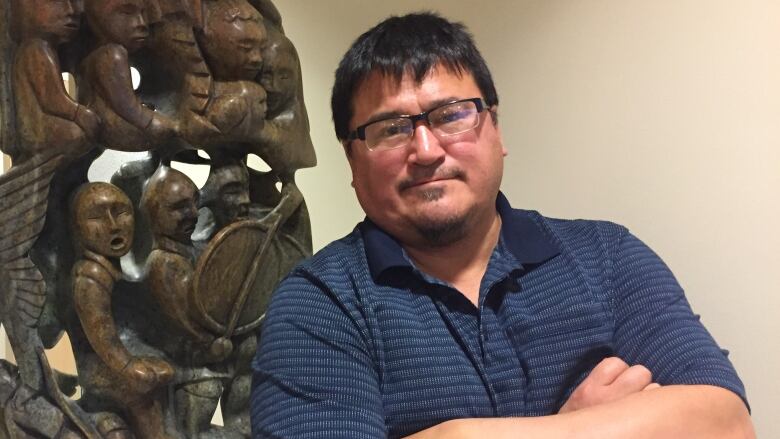Here's what the Inuvialuit Regional Corporation has been working on during the past COVID-19 year
Food security initiatives, and gas and environmental projects are keeping IRC busy

It's been a busy year for the Inuvialuit Regional Corporation (IRC).
Duane Smith, the organization's chair, spoke with Dodie Malegana, host of the CBC program Tusaavik, about what the IRC has done to support its beneficiaries since the COVID-19 pandemic hit the country last March.
A lot of work, he noted, was to enhance food security.
"We've provided community freezers to five of six of our communities," he explained. "The intent here is each of the community corporations would manage and operate these freezers."
They also distributed mobile generators, chainsaws, ice augersand nearly 500 fishing nets in their communities, he said,"So that they can enhance their household supply of food, but also so that they're more independent in getting food themselves. "
Smith said the IRC has also distributed funding to its community corporations to gather and distribute country food to women's shelters and homeless shelters, people who can't get out themselves, and elders.
This is on top of the regular work the organization does, said Smith, to work and negotiate with the federal government for the collective interests of its beneficiaries.
"We got 10-year agreements with the federal government now, to enhance Kindergarten to Grade 12, from our perspective," he said. There's also an agreement, he said, that has been enhancing the experience of post-secondary students.
"A lot of the beneficiaries are receiving increased supports so that they don't have to worry about their rent or where they're going to get their next meal," he said. "We're trying to give them support in that sense, so that they focus on getting their education so that they can graduate and hopefully come and work for the organization."
An ambitious plan to produce liquefied natural gas (LNG) at a gas field near the Inuvik to Tuktoyaktuk Highway was also announced last June.
"It could provide long-term energy to the communities in the region, as well as reducing greenhouse gas emissions, creating long-term employment," said Smith. "This gas field has roughly 100 years of gas energy that it can provide to us, so we're looking at roughly four generations that could be working on this."
The year ahead
Turning to the future, Smith said the IRC is trying to take over the custody of Inuvialuit children in the child welfare system.
"It's important for our children to know who they are as they grow up, so they could grow up proud and be self-determined and pursue active lives and careers," he said.
Smith said the IRC has been working on having the federal government pass legislation for the past year so that it, the IRC, can create its own law regarding Inuvialuit children in care.
"It's part of reconciliation," he said.
In the fall, Smith is expecting a Regional Strategic Environment Assessment of the Beaufort Sea to be finished. The far-reaching scientific and traditional knowledge study is something the IRC asked the federal government for back in 2016.
"That assessment has been going on for four-and-a-half years now," he said.
"It's quite a large report, but we need this type of information so that we could make informed decisions as we move forward.... We have to make sure we're looking after the environment to the best that we can, because it has to look after us."
The IRC will also continue to adapt the COVID-19 supports it's been delivering to beneficiaries, said Smith, with much of the funding still being transferred to community corporations so they can decide what their priorities are on a local level.
With files from Dodie Malegana












_(720p).jpg)


 OFFICIAL HD MUSIC VIDEO.jpg)
.jpg)



























































































